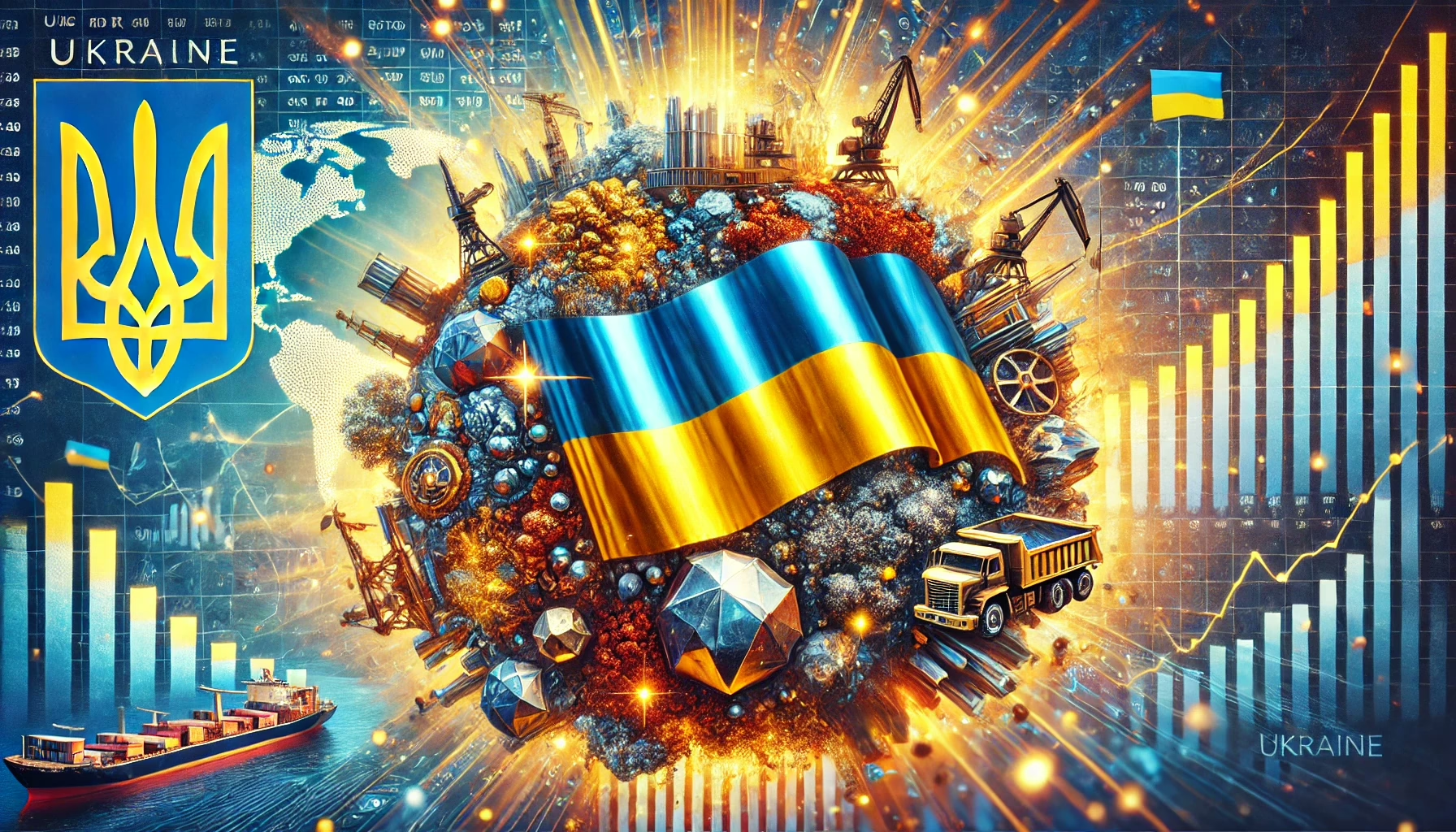Ukraine's Natural Resources: Wealth, Worth, and Impact on Global Markets
Ukraine, often referred to as the “breadbasket of Europe,” is a country rich in natural resources. Its vast reserves of agricultural land, minerals, and energy resources have made it a key player in global markets. However, the ongoing conflict with Russia has significantly impacted Ukraine’s ability to harness these resources, creating ripple effects across global commodity markets and stock exchanges. This article explores Ukraine’s natural resources, their economic worth, and their influence on the stock market.
Ukraine’s Key Natural Resources
Agricultural Resources
Ukraine is one of the world’s largest exporters of agricultural products, particularly grains. The country boasts:Fertile Land: Over 40 million hectares of arable land, accounting for nearly 25% of the world’s chernozem (black soil), which is highly fertile.
Major Crops: Wheat, corn, barley, sunflower oil, and soybeans.
Global Contribution: Ukraine supplies approximately 10% of the world’s wheat, 15% of corn, and 50% of sunflower oil.
Mineral Resources
Ukraine is home to significant deposits of minerals and metals, including:
Iron Ore: The country has some of the largest iron ore reserves in the world, with major deposits in Kryvyi Rih.
Coal: Ukraine holds substantial coal reserves, particularly in the Donbas region.
Lithium: Recent discoveries suggest Ukraine may have some of the largest lithium reserves in Europe, a critical mineral for battery production.
Other Minerals: Manganese, titanium, uranium, and rare earth elements.
Economic Worth: The mining sector contributes significantly to Ukraine’s GDP, with iron ore and coal being major export commodities.
Energy Resources
Ukraine is a key player in the energy sector, with:
Natural Gas Reserves: Estimated at 1.1 trillion cubic meters, making it one of Europe’s largest gas producers.
Oil Reserves: Smaller but still significant, with potential for further exploration.
Renewable Energy: Growing investments in wind, solar, and biomass energy.
Impact on Global Commodity Markets
Ukraine’s resources play a crucial role in global commodity markets. The ongoing conflict with Russia has disrupted supply chains, leading to significant price volatility and shortages in key markets.
Agricultural Markets
The war has disrupted Ukraine’s ability to export grains, leading to a global wheat and corn shortage.
Countries in the Middle East and Africa, which rely heavily on Ukrainian grain, have faced food insecurity and rising prices.
Global wheat prices surged by over 40% in the months following the invasion, impacting food inflation worldwide.
Energy Markets
Ukraine’s role as a transit country for Russian gas to Europe has been disrupted, leading to higher natural gas prices in Europe.
The conflict has also spurred global efforts to diversify energy sources, accelerating investments in renewable energy.
Metals and Minerals
The disruption in iron ore and steel exports from Ukraine has affected global supply chains, particularly in Europe.
The potential for lithium mining in Ukraine could position the country as a key player in the electric vehicle (EV) battery supply chain, but the conflict has delayed exploration and development.
Commodity-Driven Stocks
Companies in the agricultural sector, such as fertilizer producers and grain traders, have seen significant stock price movements due to supply disruptions.
Energy companies, particularly those in oil and gas, have benefited from higher prices, while renewable energy stocks have gained traction as countries seek alternatives to Russian energy.
Defense and Security Stocks
The conflict has led to increased defense spending in NATO countries, boosting stocks of defense contractors like Lockheed Martin and Raytheon.
Market Volatility
The uncertainty surrounding the conflict has led to increased market volatility, with investors flocking to safe-haven assets like gold and U.S. Treasuries.
Stock markets in Europe, particularly in countries heavily reliant on Ukrainian and Russian commodities, have experienced significant declines.
Supply Chain Disruptions
Companies reliant on Ukrainian and Russian commodities, such as automotive and electronics manufacturers, have faced supply chain challenges, impacting their stock performance.
Long-Term Implications
Global Food Security
The war has highlighted the importance of diversifying food supply chains and investing in agricultural resilience.Energy Transition
The conflict has accelerated the global shift toward renewable energy, with countries seeking to reduce dependence on Russian and Ukrainian energy resources.Economic Recovery in Ukraine
Post-conflict reconstruction efforts could create investment opportunities in Ukraine’s agricultural, mining, and energy sectors.
Conclusion
Ukraine’s vast natural resources have long been a cornerstone of its economy and a critical component of global commodity markets. The ongoing conflict has disrupted supply chains, driven up prices, and created volatility in stock markets worldwide. However, it has also underscored the importance of diversifying supply chains and investing in sustainable alternatives. As the situation evolves, Ukraine’s resources will remain a key factor in shaping global markets and economic trends.
For investors, the crisis presents both risks and opportunities, particularly in sectors like agriculture, energy, and defense. Keeping a close eye on geopolitical developments and commodity prices will be essential for navigating this complex landscape.





